
Who here has paid a death claim? Who here has settled an estate for someone they love?
So, you have had face-to-face experiences with the fact that our planning extends beyond the grave.
Nicole and Jack were a happy, fun-loving couple who had lived together for several years and planned to get married. Both of them were in their early 30s, vibrant, in great health, with lots of friends and always on the go. Both loved their work and were dedicated to building their careers. They were enjoying life to its fullest, and neither had taken any time to consider what would happen to them or their families in the event of a serious accident or illness. That kind of planning simply was not on their radar.
While on vacation in Florida, Nicole and Jack went out for a ride on a moped. Jack drove, and Nicole rode behind him. It had rained earlier that evening, and the roads were still wet. On a poorly lit road, Jack made the mistake of hitting the accelerator a little too hard and then had to brake sharply to try to make a tight turn that he had not seen coming. He lost control of the moped, ran a stop sign and spun into an intersection. An oncoming tractor-trailer hit them. Nicole was killed instantly, and Jack sustained major injuries from which he would never fully recover.
Nicole’s parents, Tim and Barbara, got the dreaded phone call with the grim news that their young, active, energetic daughter had suddenly been killed, but that was only the beginning of the endless nightmare. In shock and overcome with grief, they were faced with many logistical concerns that needed to be handled immediately.
Nicole was only 34 years old and had left no instructions on how to handle her funeral arrangements and final affairs. She also had no insurance policy in place to cover funeral expenses. In addition to processing the monumental grief that accompanies losing a child, Nicole’s parents had to deal with the significant administrative, legal and financial realities connected with making long-distance funeral arrangements.
Think for just a moment about how difficult that must have been for them and how emotionally unprepared they were to deal with that burden.
They were not required to fly to Florida to identify the body. Nicole’s boyfriend was able, although just barely, to take on that responsibility. They had no idea what kind of service, if any, Nicole would have wanted, so they took advice from others that cremation was the most expeditious and inexpensive way to get the body home. In the absence of any instructions to the contrary, they arranged to have their daughter’s body cremated and were surprised to discover that the ashes could only be transported through the U.S. Postal Service to Massachusetts for the funeral service. They did the best they could under extremely trying circumstances. Unfortunately, their ordeal was not even close to over.
Nicole owned a small business and had a complex personal financial situation. She had multiple bank accounts, school loans, a car loan and an outstanding business loan in addition to several credit cards with balances. Her information was online, and the family did not have any access. Nicole left no clear instructions about any of her financial matters, and it was up to Tim and Barbara to sort everything out. They began by reviewing her incoming physical mail, talking to her friends and convincing the landlord to allow them access to her apartment. They had no idea how to check her email, how to log in to any of her important accounts or how to reach her accountant. All they had was the daily mail delivery.
They spent countless hours on the phone trying to track down information, requesting forms and looking up various contact numbers. In the search, they uncovered their commitment to pay the student loans as a co-signer.
Nicole left no will — that was something she thought she could easily postpone until later in life. Tim and Barbara faced the monumental task of figuring out precisely what assets she had and how to distribute them.
Nicole’s parents also had to face the sensitive question of what to do about Jack, who needed major medical care following the accident. Did they have any moral or financial responsibility for Jack as he had minimal health coverage and was covered under Nicole’s health insurance plan? Jack and Nicole were not married, yet he was covered as a domestic partner.
One year after Nicole’s passing, Barbara and Tim are still dealing with unresolved issues. The number of administrative tasks has compounded their grief and left them with more questions than answers. It has delayed their healing process because they still do not have closure on their daughter’s personal affairs.
We cannot ask Nicole this question, but we can ask you: What would Nicole have wanted? Did she want her parents to make decisions for her? Did she want the burden of handling her affairs to rest solely on her grieving parents?
The outcome would have been very different if Nicole had only known …
The lesson learned: If Nicole had thoughtfully planned, her parents or her boyfriend would have known exactly what to do and who the right people were to contact to execute her wishes. They would have known who her accountant was, where she banked and which loans or credit cards might have been on an automatic payment schedule. But she did not plan. As a result, her story is tragic, and her life affairs, even after her passing, are complicated, burdensome and messy for those who were closest to her.
Nicole’s prolonged estate finalization and closure is, unfortunately, not unique. The death of an adult child with no clear direction leaves all responsibilities to his or her parents and loved ones. Advanced planning is critically important, yet most people do not know where to start.
Ask yourself the question, Who would be most affected if something were to happen to me tomorrow, and what would that person have to do? This is not an easy question to ask, but it is imperative that you ask it and consider the consequences. Make a written list of the individuals who would be most immediately and adversely affected by your passing or your incapacitation — not just emotionally but also logistically and financially — and then make some notes as to how each person would have to respond if something were to happen to you. Your list should specifically include the following information:
- Who will likely find themselves responsible for handling your funeral and/or memorial arrangements?
- How will that person know what your final wishes are?
- How will the funeral and/or memorial expenses be paid?
- Who will be responsible for settling your financial affairs?
- What kind of records will that person have access to?
- In the weeks or months following your incapacitation or passing, how easy or difficult will it be for that person to interact with your employer?
- Who are your insurance providers?
- Do you have any creditors?
- Who will be responsible for taking care of your loved ones — your children, aging parents or pets?
- Who will tend to your household?
Put that list away, and give yourself a few days before you look at it again. Once you have had a little time to digest this difficult task, review the list again closely. Make any additions or changes you feel are necessary.
Now, set time aside for planning. Creating and revising the list and considering the consequences will provide clarity on how important it is for you to take action. Clarity will lead to confidence in taking action to protect the security and peace of mind of those you love if something happens to you.
Regardless of your age, it will benefit you greatly. It is important that you not only start the process but also follow through and finish it.
No one likes to think or talk about death and dying. It is not a happy subject. Nevertheless, the reality is that each of us will have to deal with the passing of a loved one and, sooner or later, will have to prepare for our own passing. Love never dies, but life happens and death happens, and we must find a way to share our wishes with those we love.
A culmination of experiences, both personal and professional, inspired me to speak. As professionals who have helped numerous clients plan for and process the intimate details of a loved one’s passing, we are passionate about our “why” — helping families — and we feel compelled to share what we know.
- We have witnessed firsthand the disorienting and emotionally devastating effects common planning oversights have on loved ones. The unexpected need to make urgent, time-sensitive decisions while still in shock over a loss can be overwhelming.
- We have heard too many people say, “If I only knew …” or “If he/she had only known …” in response to a needless disagreement over money or property that could easily have been avoided with just a little advice and expertise.
- We have navigated numerous client situations and have given precise directions for overcoming major challenges, so we feel a professional responsibility to share our knowledge on how to avoid the most common mistakes. More importantly, we are passionate about motivating and helping people make sense of the task of leaving their loved ones the invaluable gift of an organized estate with clearly communicated wishes.
- Each of us has had personal experiences with our own loved ones who inadvertently overlooked something important.
- We believe that we have a similar obligation to help people who find themselves responsible for settling an estate, particularly one in which there are unresolved issues.
- We know that when people have the right advisor, a personal desire to settle the important issues and appropriate resources to “get their affairs in order,” they are more likely to act.
Our goal is to help educate and inspire people about why and how to begin taking action both before death and after losing a loved one.
Each family’s situation is unique, and there are countless variations on even the most common scenarios. This can make taking that first step seem overwhelming. We have made a special effort to highlight the simplest and most important action items that will serve as a starting point and sustain your momentum. Getting started is crucial because when it comes to planning and settling an estate, it is important to understand that inaction is a choice. In fact, it is often an extremely expensive choice — one that takes a heavy emotional and financial toll on those left behind.
Estate planning is a precious gift that each of us can and should give to our loved ones. Our aim is to help you make that gift possible. With the right team supporting you, you will find that one of the most difficult periods of life can become much more manageable, and your legacy will be something loved ones and family members will remember positively for decades to come.
Many people assume that the task of planning their estate should emerge as a priority later in life — when they are in their 50s or 60s — and certainly not when they are only in their 30s and 40s. It is common for this timing to be expressed not as a choice but as an assumption: “I never really thought about it before. After all, I’ve got plenty of time, don’t I?” If that is your mindset, let us respectfully suggest that you closely consider the following true story as a reminder that life is a precious gift and that you never know what tomorrow may bring.
Your People
Dianne was the founder and CEO of a major fashion line. When she died at the age of 43, her partner, Lee, was understandably grief-stricken. What Lee did not realize was that the grieving process was just the beginning of his troubles. Dianne had provided generously for Lee in her will, yet she had not given Lee a copy of that will and had not shared with him information about the attorney and accountant who would be handling her estate. It took Lee weeks of stressful research to track down this important information.
Dianne could have spared him much stress and anguish if she had prepared and shared a list of key contacts.
Which brings us to the question: Who are your people?
You should assemble a written master list with complete contact information of key people and update it annually. These people will fall into two separate groups.
Group 1: The inner circle (the people who help you decide what to do)
These are the people who will help you set priorities and get your affairs in order while there is still time to do so, and who will be there to help carry out your wishes once you are gone. These are the people you trust because they know you, and they understand your intentions.
Here is a sampling of the kinds of people who should be in your inner circle and on this list. [visual] Note that some of these individuals may overlap, and that some categories (such as business partners) may not be relevant to your situation.
Group 2: The professionals (people whose advice, insights and services you rely on to plan and execute your final wishes)
You may also choose to identify a team of professionals — individuals with the professional experience necessary to help assist you on the best way to address the most complex issues of your pre-death planning.
Estate planning involves many professional disciplines, including those who are skilled in the areas of wills, trusts, insurance, bookkeeping and accounting, business planning and the tax implications of gifts and bequests. You are not likely to find one individual who can handle all these areas. Based on your personal situation, the complexity of your assets, and your goals, you may decide that it makes sense to assemble a professional estate planning team.
The captain of the team — this is you, of course, but you may opt to select one individual from the above list whose insights and advice you trust implicitly and whose guidance you seek before making any major decision. That is your right as the captain.
Clients need confidence in why they need to work with qualified professionals and how to do so. It is essential that you feel comfortable working with your team of trusted advisors.
We need to build our COIs to create that network of trusted professionals on behalf of our clients.
Your assets and your obligations
What do you own, and where is everything located? These are important questions that your loved ones will need to be able to answer.
Amanda was in junior college and her sister, Lauren, was a senior in high school at the time of their father’s passing. Their mom had died years earlier. Their father, Ryan, was the CEO of a successful construction business. When he died, they discovered that he left no records indicating his personal wishes — no instructions, no will and (crucially) no asset list. Amanda assumed responsibility for her younger sister and managing her father’s affairs. Ryan was a private person who did not share much about his financial picture with anyone, and Amanda did not know where to start. She had absolutely no idea who his accountant was, who his attorney was and whom she should talk to at his company to learn about his business assets. She suddenly was responsible for closing a business and answering lots of questions that she knew nothing about. It took more than six years to locate and secure all her father’s assets. It was, and still remains, a discovery process.
This situation could have been totally different if Ryan had taken the time to plan ahead and execute a will and if he had shared with loved ones a detailed listing of his business interests and personal finances.
No one will ever know for sure why he did not plan better. It is hard to second-guess, but perhaps he felt his death was years, or even decades, away. Amanda and Lauren’s experience is not unique, and each day they are reminded of the value of planning. They have shared their story with the hope that others will learn from their experience.
Having a complete asset listing with detailed physical locations and specific instructions is a gift to your loved ones. Do not leave it to them to research (and perhaps give up on locating) the assets that have taken you a lifetime to accumulate.
Asset ownership and beneficiaries
It was a great day when Jessica and Ryan got married. They were childhood sweethearts who went off to college, met and married other people and got divorced. They reconnected at their high school reunion, rekindled the flame and got married a year later. During this joyous period, Jessica neglected to update her beneficiary designation. She fell into the common pattern of assuming that all of her assets were “taken care of.”
Jessica died tragically in a ski accident. Unfortunately, Jessica was remarried but never changed the beneficiary designations on her retirement assets or her company-sponsored life insurance. Upon her death, her ex-husband received her life insurance death benefit directly, and her current husband and ex-husband went to litigation on her employer-sponsored retirement plan. Ryan knew that Jessica would never have wanted her ex-husband to receive the life insurance proceed, but that was completely out of his control. Life insurance proceeds always go to the named beneficiary. As for her retirement plan, Ryan was able, albeit with additional hassle and expense, to make the case that he never signed a waiver allowing Jessica’s ex-husband to be the beneficiary of her retirement account at work. It is a law that spouses must be the beneficiary of qualified retirement plans, like 401(k)s, unless they sign a waiver, which would have allowed Jess to name someone else. Since this was not done, Ryan received her retirement funds.
It is essential to review your assets and beneficiary designations annually. Leaving an unintended beneficiary in place is an all-too-common mistake that can have a significant emotional and personal impact on your affairs. Make sure your intended beneficiaries receive the funds. Review and update your beneficiary designations regularly!
Amy was excited about her new job, and, on her first day, she completed her onboarding paperwork. She dutifully signed up for all benefits, including the 401(k) plan. The enrollment form asked for a beneficiary designation and Social Security number for the beneficiary. Amy wanted to name her sister as beneficiary but did not know her Social Security number, so she temporarily left it blank until she could get the information. Because she never completed the form to formally name a beneficiary, her 401(k) plan had to be processed as an estate asset. After a lengthy delay, the money was dispersed to many people — the complete opposite of Amy’s intended wishes.
At the age of 25, Jason was able to move from his parents’ home to a supervised living group home for mentally challenged adults. He loved his new environment and thrived in the community. Jason’s father passed shortly after this move, and when his mother passed away four years later, their entire estate went to Jason outright. With this influx of assets, he was no longer qualified to receive state assistance. This meant that Jason was no longer able to participate in his woodworking job, a state-sponsored program, which gave him joy and purpose.
Jason’s parents meant well and never intended their assets to supplant him from state and federal benefits. This was meant to supplement his long-term needs. Proper planning would have avoided the chaos for Jason after their passing. These kinds of changes in circumstance need to be monitored and considered when you review your beneficiary designations. For many people, it makes sense to schedule the asset and beneficiary review annually, possibly to coincide with the annual tax filing.
Janice loved her job. She spent 20 years working for a local YWCA, a nonprofit with a mission focused on eliminating racism and empowering women. Although she did not receive a huge salary, she did receive great benefits. She dutifully participated in open enrollment every year and contributed to her 403(b) retirement plan. She was a divorced, single mother of two. She thought that her children were the beneficiaries of her retirement account, but when she got divorced, she forgot to officially change the designation. At the time of her death, Janice’s ex-husband was still listed as the beneficiary. Even though her will specified that her two children were to inherit her assets and divide them equally, her retirement account went directly to her ex-husband because she had not updated the beneficiary form. Regardless of what you say in your will or trust, assets will pass to whomever is designated as the beneficiary. You must be very careful to ensure that the beneficiary designations on your assets are up to date and accurately reflect your wishes!
As you have seen, there are many situations when an individual may unintentionally leave contradictory instructions about how assets should be distributed, and the result is stress, chaos and confusion for the family.
Digital assets
Today’s cellphones, computers and social media accounts store vital information that people may need access to after the death of a loved one. It is important to provide this information and to make your wishes known about shutting down all relevant accounts.
Susan was grief-stricken by the loss of her youngest daughter, Elizabeth, who died in a car accident. Susan often looked at her daughter’s Facebook account to see her pictures. What she did not realize was that her daughter’s Facebook account had been hacked, and someone had added pictures and sent messages, such as “How are you? How’s the family? Been a while. Don’t miss me too much.” Susan was devastated. If you do not want your loved ones to have to go through something traumatic like that, you should tackle the following to-do items. [visual]
Hundreds of millions of people use Facebook, the world’s leading social media platform. If you are one of them, here is a question you should consider closely: What will happen to your Facebook account after you pass away? The answer is: It is up to you. Either memorialize your account or request it to be deleted.
Estate planning — legal documents
Your primary objective in completing and updating legal documents is to ensure that your assets go to the people you want to receive them and that your wishes about what you care about the most are known if you are ever unable to make those decisions for yourself.
Make your wishes known and your documents accessible
We have been privy to some complicated and disappointing situations relating to advance health care directives (also known as living wills), including one in which doctors continued resuscitation measures when that was not the person’s wishes. The reason? The family did not bring the advance health care directive, which the doctors needed to see. The loved ones knew the wishes but did not know where to locate the documentation for their loved one.
The lesson learned was this: It is important to not only make your wishes about medical care known in writing, but also make sure that family members have easy access to a physical copy they can show physicians at the right moment. It can be very difficult to get members of the medical establishment to reverse a course of treatment once it has begun.
We strongly recommend that you discuss with your inner circle the question of who can and cannot make medical decisions on your behalf when you are unable to do so for yourself. It is very important for others to understand your intent if you are unable to make decisions or you have specific requests for end-of-life planning. This is not always easy, and yet it is critically important. It may be worthwhile to consider including physicians and/or clergy in these discussions.
Bob was 19 years old and a standout varsity lacrosse player. During a playoff game, he went head-to-head with the opposing team and was knocked out cold with a concussion. He was rushed to the local hospital in stable condition, and his parents were called. Because he was over 18, Bob’s parents were unable to get information about his medical records and had no authority to make decisions for him because he did not have a health care POA.
The godparent question
True or false: The people you select as godparents will become your children’s legal guardians if something happens to you.
Matt and Katie were a young couple with two lovely girls, Jessica (11) and Julianna (8). Both girls were baptized at the church that Katie had grown up in. At the time of each baptism, they had asked their friends, Mark and Lisa, to act as the godparents, and Mark and Lisa had agreed. They were amazing godparents — happily married, heavily involved in the girls’ lives and active in the church. They had known Katie and Matt for more than a decade and were close friends. Matt and Katie felt that they were the perfect choice to watch over their children if anything were to happen to the two of them before Jess and Julianna became independent adults.
Then came the day when Matt and Katie took the girls on a day trip up to the mountains to go swimming. Matt took a tight turn too wide and caused a head-on collision with an RV. Matt was killed on impact, and Katie died a few hours later at the hospital.
Both girls survived with serious injuries. The physical injuries would heal in time, but what wouldn’t heal were the emotional wounds of losing both parents at such a young age. Traumatized, the girls relied on their godparents, who spent shifts staying in the hospital with them every day until they were discharged.
Mark and Lisa assumed that the next step would be to find some way to confirm their legal guardianship of the girls. But Matt and Katie had never appointed a legal guardian for their children, and there was no documentation of their wishes. So, the judge made the decision and appointed Matt’s brother, Eric, as legal guardian, which did not coincide with what they would have wanted.
You could argue that Eric was not the best choice. He lived in a small apartment, usually worked 12 hours a day and seemed to have little time to spend with the girls and to take care of day-to-day tasks. Mark and Lisa were troubled by rumors they heard that Eric spent long nights out drinking with his friends. They felt certain that he was not the person Matt and Katie would have chosen to take care of their daughters. But the judge had the final say, and he chose the person who was “next in line” in the family. Eric agreed to be the guardian, and there was nothing to be done.
Selecting someone as a godparent is not legally binding. Your wishes will not be taken into consideration if you do not take the next step to formally document them and make them binding. Do not leave a detail like this to chance — be sure to formally identify your preferred guardians for your children.
The value of trusts
Aunt Diane, always referred to as the “fun aunt,” took great pride in being highly present in her nieces’ and nephews’ lives. She and her husband, Rob, decided that, should anything happen to them, they wanted everything to go to each other. Then they were faced with the question of what would happen if they passed together. They decided that they wanted everything to go their nieces and nephews for education and for certain trips and experiences they would have liked to afforded their nieces and nephews if they were still living.
Aunt Diane and Uncle Rob originally set it up so all the nieces and nephews were equal contingent beneficiaries on their insurance policies, investments and retirement plans. Then they were unsure about who would get the death benefits and accounts, and at what age, if they had their young nieces and nephews named directly. They didn’t want the money to be held at the insurance company until the minors reached a certain age. They thought about naming their siblings but weren’t very confident in how they handled their finances. Some of the siblings were big spenders, not savers, and Diane and Rob wanted to make sure the money was there for education.
They met with an attorney and discussed their ultimate goals and objectives. A trust was drafted, and a trustee was named to carry out their wishes. Diane and Rob realized a couple of things they didn’t even think of. If Rob died and left Diane all the proceeds, there was no assurance that if Diane then passed, the nieces and nephews “on both sides” would be treated equally and without squabble. They were able to include the house and assets in the trust, which helped them know everything would go where they wanted it to go. Lastly, the attorney asked what they wanted if some of their nieces and nephews already finished college. What should the money be used for? Or should it be given to them outright? They were able to put down exactly what they wanted in the trust. Aunt Diane and Uncle Rob feel extremely confident that if anything happens to them, they will have a huge and intentional impact on their nieces’ and nephews’ lives through their planned legacy.
Financial planning
The following to-do items are important for establishing a solid financial plan for your personal estate:
- Identify and list all assets.
- Identify all advisors and introduce them to each other.
- Select the right insurance advisor.
- Do an annual review of your insurance coverage.
Getting on the same page
Mary Ellen is a vibrant, independent widow who plays golf three days a week and is active in her retirement community. She is also very conscientious and has thoughtfully planned for her future if she is unable to live alone or needs extended medical assistance. She purchased a long-term care policy that will pay for home health care or nursing home care. Her plan is that her daughter will receive the long-term care benefit when she opts to move in with her because the daughter will be providing care. However, Mary Ellen’s daughter Leslie was not aware of her mother’s wishes and planning until her advisor recommended a group family meeting. Leslie was able to discuss with her husband and confirm their desire to have Mary Ellen move in with them if she ever needed increased assistance. Leslie was also grateful and pleasantly surprised that her mother had taken steps for financial protection. This is something Leslie had worried about secretly, having seen her friends upheaved by a parent’s sudden need for additional resources of both time and money. It is extremely important to schedule these regular meetings so you and your loved ones can share, review and assess your goals for the future.
We cannot overemphasize the importance of working with a qualified insurance professional and conducting regular policy reviews with your family.
- Think in terms of an “insurance portfolio,” not in terms of “ individual insurance policies.”
- Disclose all relevant information to your insurance advisor.
- Ask your insurance advisor to request an in-force illustration specifying exactly what will happen with your current policy/policies in its/their current state.
Making the most of your insurance portfolio
Statistically, the average insurance consumers will modify their life insurance portfolio seven times over the course of a lifetime. Someone may buy their first policy when they get married and then upgrade it upon the birth of a child. They may start off purchasing term insurance and then move to an interest-sensitive whole life policy. The type and performance of life insurance policies selected can be expected to change often. With the general population living longer, internal mortality costs on life insurance policies have gone down. This means that older insurance contracts need to be reviewed more often because it is possible that the consumer purchased an insurance policy that was aligned with interest rates during a high-interest rate and mortality cost environment. When the rates dropped, the insurance company lowered the interest rates accordingly, but the consumer did not realize this could happen until many years later when they were notified they had to either pay a higher premium to keep the same death benefit or choose a lower death benefit. This is yet another reason to schedule regular reviews with a qualified insurance professional who can “translate” the terms of your policy and help you make good decisions going forward.
Ask your insurance advisor to explain the various contract features.
Who knew?
Bill was diagnosed with amyotrophic lateral sclerosis (ALS, or Lou Gehrig’s disease) when he was 57 years old. ALS is a progressive disease that attacks the nervous system and eventually leaves the person totally disabled. With this diagnosis, Bill became uninsurable and was unable to purchase additional life insurance. His immediate focus was on maintaining what coverage he already had so that he could preserve and extend some benefit to his wife and children. When Bill reviewed his current policies with his insurance professional, he learned that his policy had an important, previously overlooked, feature: a waiver of the premium provision in the event of disability. As a result of this discovery, he was able to convert his term insurance to a permanent policy without going through the medical underwriting process, a major advantage to both Bill and his family.
Bill discovered this feature in his existing policy only because he had worked closely with his advisor, purchased the right benefit and scheduled the time for a regular review of his insurance portfolio.
A teachable moment
During a routine review of his accounts, Joseph mentioned to his advisor that a colleague had just inherited some money, and his colleague mentioned “stretching the payments.” His colleague told Joe that he had to take money out of the account every year, and scheduled it to be around the holidays, but that he didn’t have to take it all, avoiding one large, lump-sum tax. His advisor explained that his colleague was likely a beneficiary of a qualified account, a 401(k) or individual retirement account (IRA). His colleague decided to use stretch provisions. Joe asked if his kids would be able to stretch out the money they would receive if Joe died. The investment advisor pulled up the accounts and noticed that on one annuity, the beneficiary was Joe’s revocable trust. The advisor explained that a trust had different stretch options, and the trust would likely have to distribute all the money within five years of Joe’s death based on IRS guidelines. However, if Joe wanted to, he could have named his kids directly as beneficiaries so they would have the option to stretch the account over their lifetimes. Joe couldn’t remember why he named the revocable trust as beneficiary, but he thought maybe it was to avoid probate. The advisor assured Joe that having a named beneficiary on the account meant it would avoid probate. They thought maybe it was for when the children were minors, but now Joe’s kids were older. The advisor explained that there can be other reasons to name the trust; one reason is for more control. With this information, Joe was able to speak to his attorney and advisor to make a decision about how he wanted to name the beneficiary of his largest account.
- Not all accounts are worth the same at death.
- If you are implementing a gifting strategy, discuss which accounts are the best to use to meet your goals.
Bringing clarity to the charitable vision
Melanie worked with her attorney to make a major change in her estate planning. She and her husband had set up a family foundation and wanted oversight to pass to their second son instead of his older brother. Melanie and her husband’s philanthropic focus differed from those of some of their children, especially their oldest son, and they wanted to make sure the family foundation’s resources were not pointed in directions they did not approve of.
They made this change without telling their sons, which was a perfect recipe for conflict and resentment. It is almost impossible to imagine a scenario when one or more adult children would not feel hurt or excluded by such a decision. They might have made matters a little easier for all concerned if they had chosen a non-family member with a relevant professional background to lead the foundation and, most importantly, had shared that information with the family.
There are any number of situations where it may make sense to direct some assets toward a particular charitable goal. Some people approach this part of estate planning with the goal of securing a tax advantage; others consider this path because of firmly held personal beliefs and experiences; still others feel that the option of giving the resources to a charitable cause is the most responsible course of action for the family as a whole. Whichever path you choose, be sure to talk to a qualified professional about the legal and tax implications.
Life changes
We have made suggestions at various points about how often you should review and update important documents, but we would like to emphasize here how important it is to make these updates whenever you experience a major life event that will affect your priorities, such as marriage, divorce, the birth of a child or grandchild or a change in health for you or your beneficiary. When important events in your life happen, take action! Update your documents to reflect these new circumstances and make it a priority right now. Your friends and loved ones will be grateful you did!
Jane, a well-respected professor, passed away at a young age after a courageous battle with cancer. She was an inspiration to many and no one more than her husband, Bob, and her sister. After many months of grieving, celebrating Jane’s life and continuing to bring awareness to Jane’s most precious cause, Bob and Jane’s sister worked to settle her estate. One of the accounts Jane had was an IRA on which her sister was still named the beneficiary. Jane’s sister and Bob both thought everything was retitled to Bob, so they were surprised to see that this over-$100,000 account had to be claimed by Jane’s sister, or it would go to the estate and through probate. Jane decided to take over the account and then give Bob the funds, and they both decided they would make a donation to Jane’s charity. It wasn’t until Jane’s sister completed her tax return that she realized she was liable to pay the taxes on the entire account, which she had given to Bob. Bob worked with Jane’s sister to pay the taxes owed and discussed the charitable deduction with his accountant to make sure everyone was made whole. Bob felt horrible about the hassle Jane’s sister had to go through, especially when she had been so generous in doing what her sister would have wanted.
Personal wishes
By planning ahead and sharing your final wishes, you will take the pressure off your family.
Maria was the oldest sibling and the most financially secure member of her family. When Maria’s mother, Tara, died, she left no instructions about the kind of funeral service she wanted. As the oldest and “most successful,” Maria took on the task of coordinating Tara’s funeral arrangements — it was what her siblings expected of her. They also expected her to pay the entire cost by herself. Maria ended up paying over $16,000 for a funeral service that she knew her mother probably would not have selected. Why? Maria did not want to look cheap to her less well-off siblings. She felt strongly that her mother would have preferred a simpler memorial ceremony and cremation, but because she had no written instructions, Maria succumbed to peer pressure to plan a formal funeral. She could have had a much easier time had her mother simply taken the time to write down her wishes and put them in a safe place and let someone know about them.
One of the most powerful gifts you can give your loved ones is to let them know what your wishes are for the period immediately following your death. Whether death comes suddenly or is anticipated after a long illness, it brings a tidal wave of emotions for those who are grieving. Numerous decisions need to be made quickly during this emotional time. Anything you can do in advance to make this traumatic period easier for the family is worth considering.
Funeral planning
End-of-life planning: A blessing
When Nancy’s mother passed away at 93 under hospice care, the nurse knew whom to call and what to do, so the death and its immediate aftermath were, in Nancy’s words, “peaceful and seamless.” Nancy’s mother had discussed end-of-life arrangements with Nancy and her three sisters, the hospice nurse and the hospice counselor. Since all the right legal documents were there — medications listed, medical records and whom to call — they were able to be fully present with their mother rather than deal with the logistics. She died with dignity, surrounded by her three loving daughters.
Most people learn about end-of-life planning and closing out an estate the hard way — when death actually occurs. Planning for death is just as important as planning for life. We plan most major events in life — weddings, births, vacations and retirement — yet most people fail to plan for death. You may ask yourself, Why does it really matter? It matters for many reasons for you and your loved ones:
- It will allow your loved ones to grieve, knowing they have clear instructions on what to do next.
- It will eliminate guesswork and save your family time, stress and money.
- It will assure that your wishes will be honored.
Like planning for life, planning for death can be the greatest gift a person can give or receive.
Planning Forms

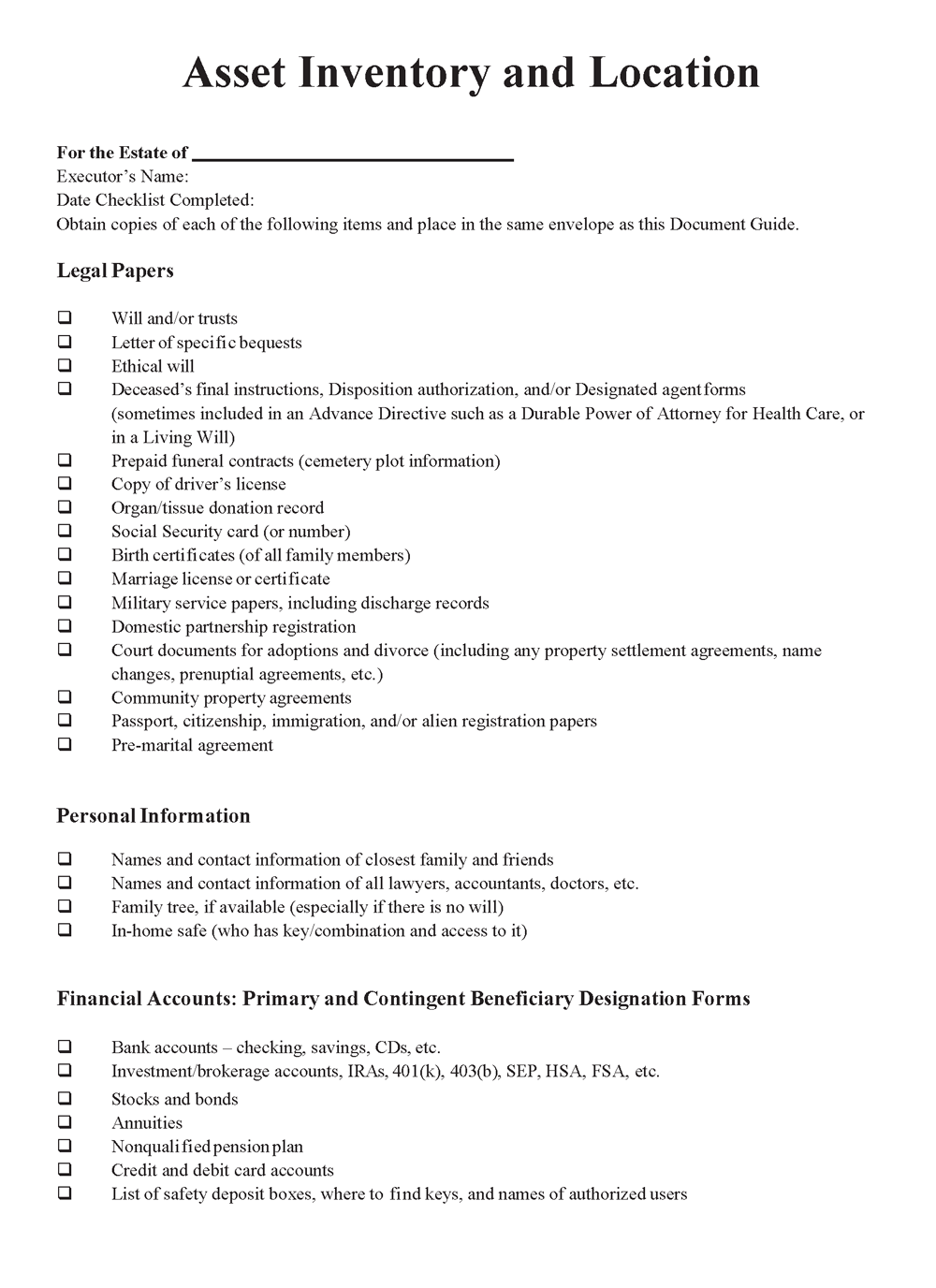
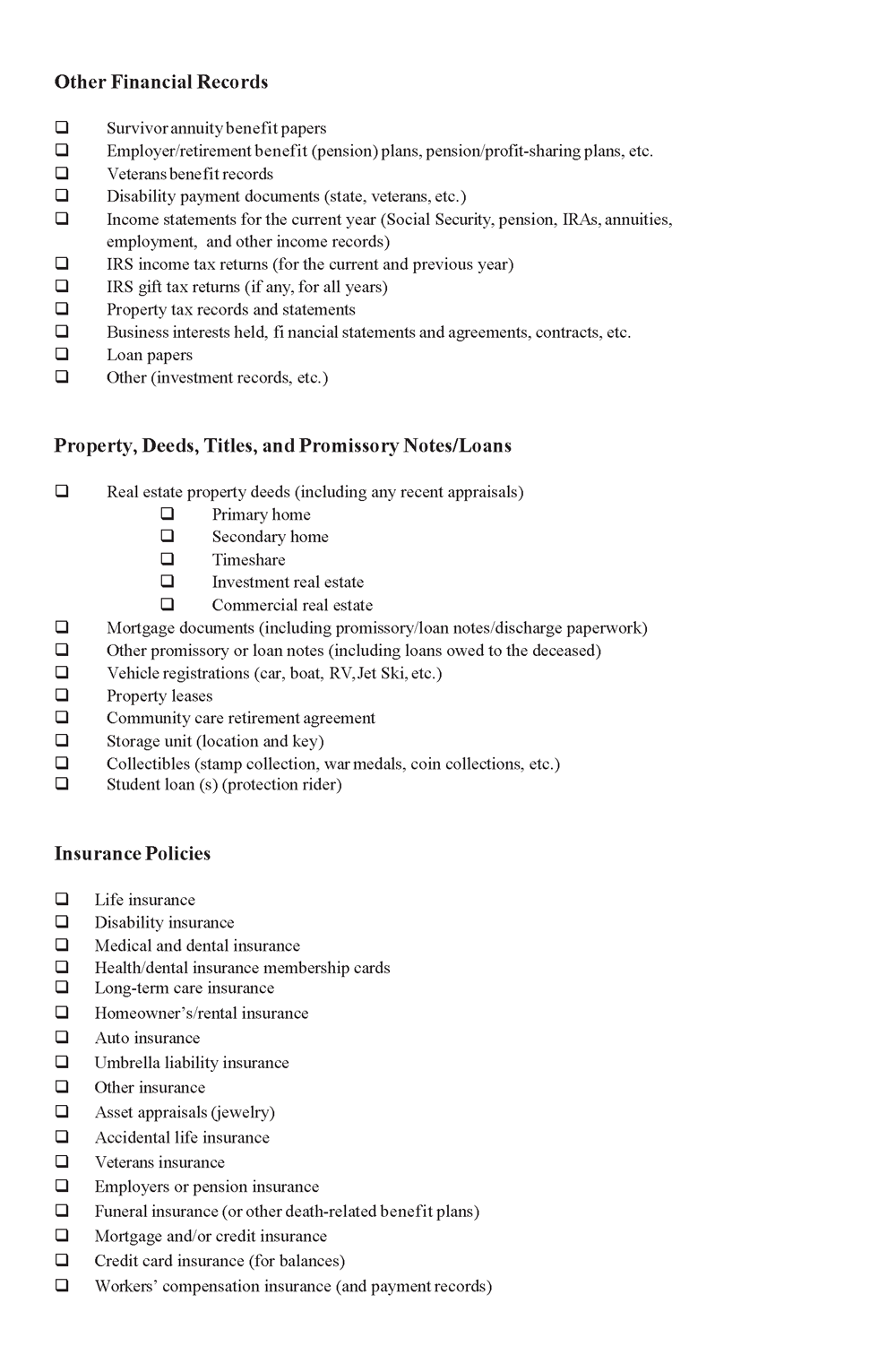
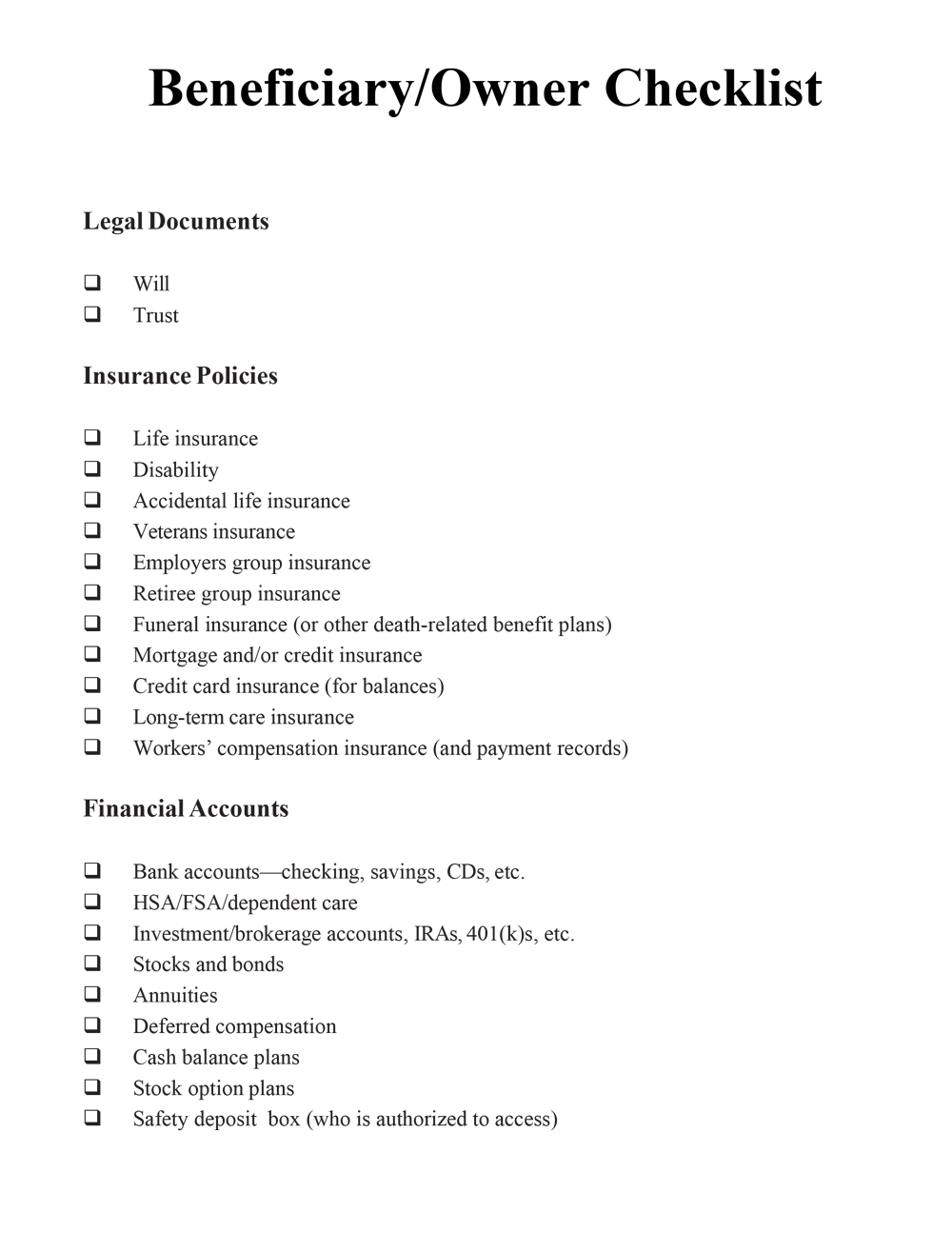

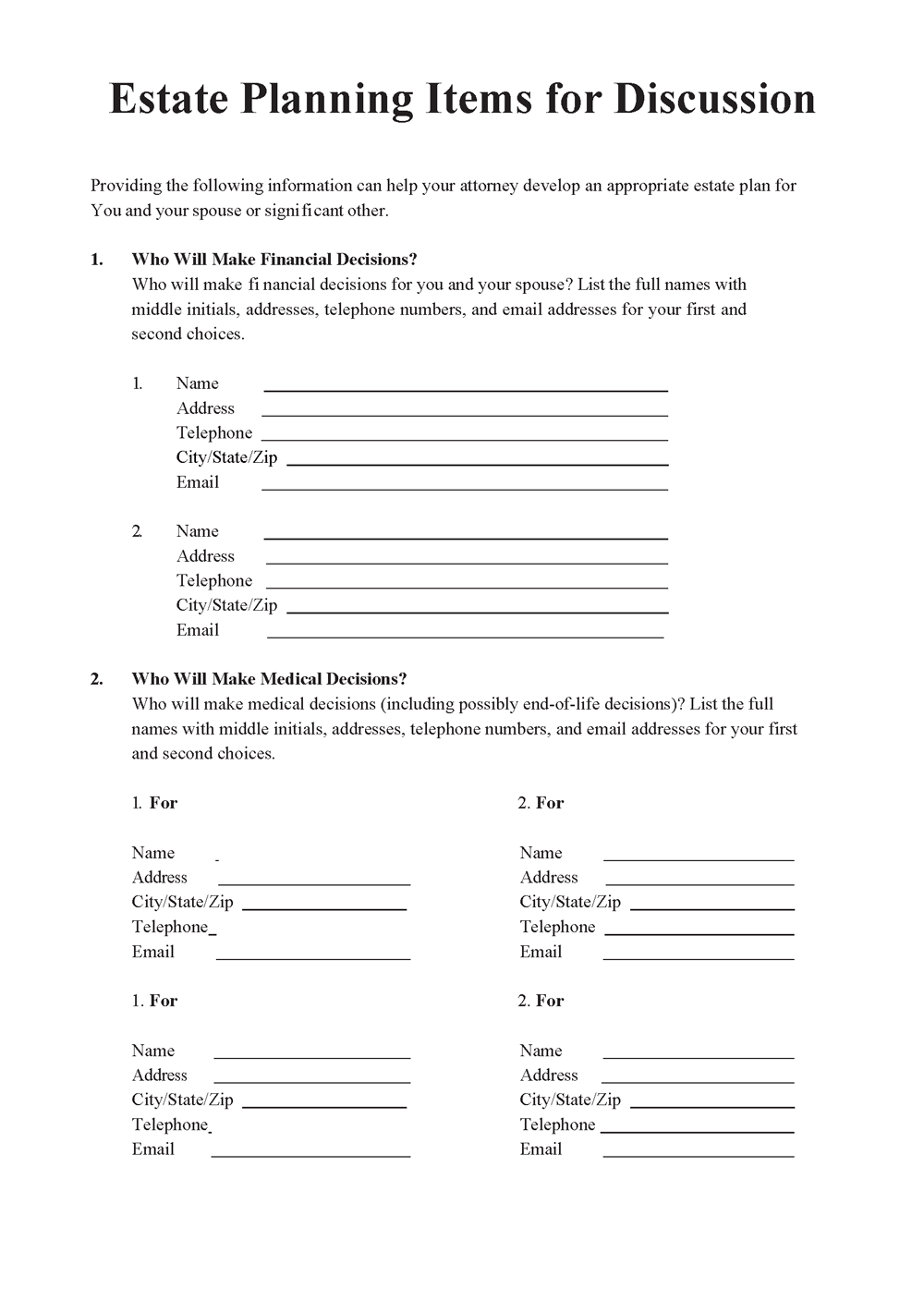
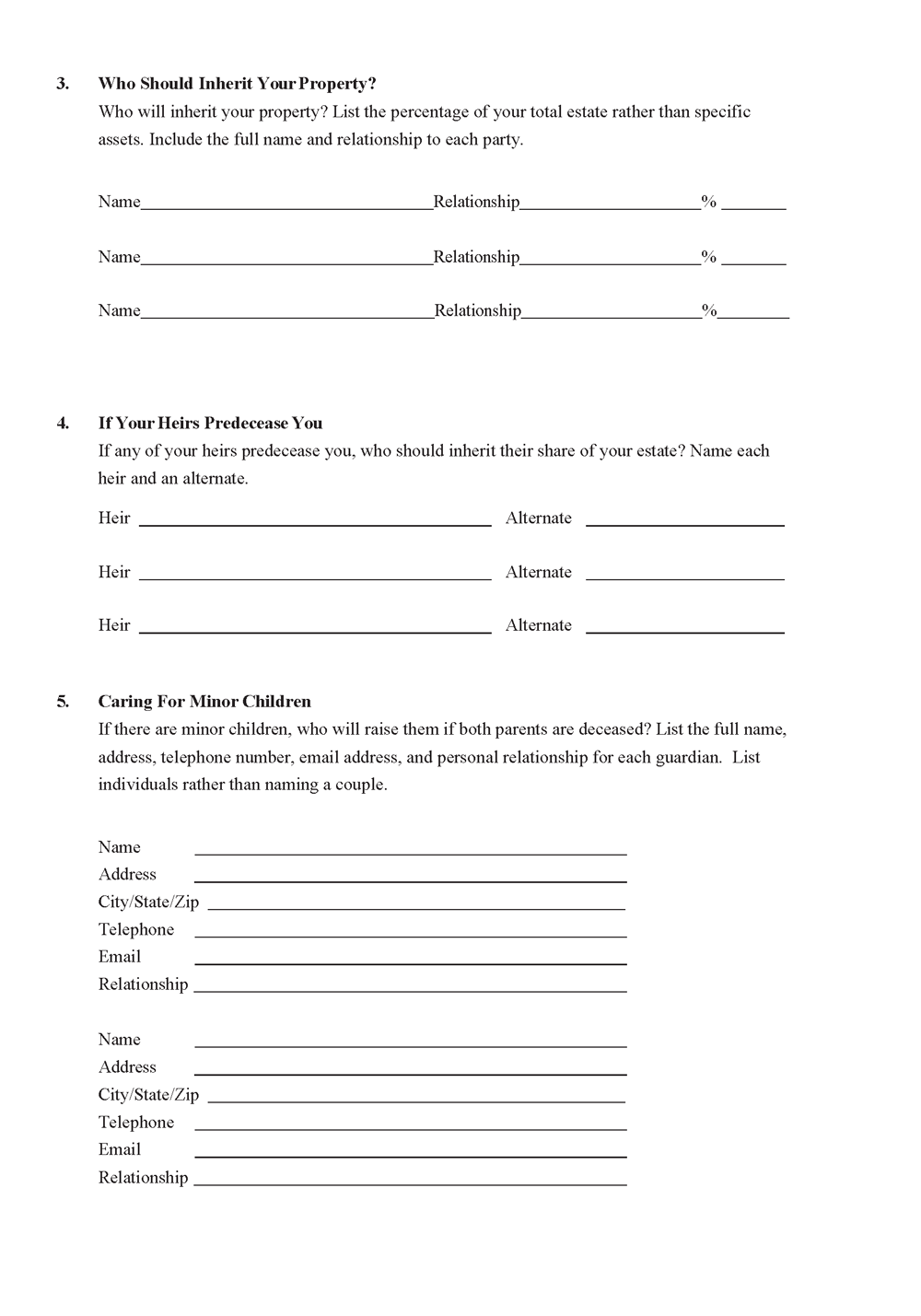

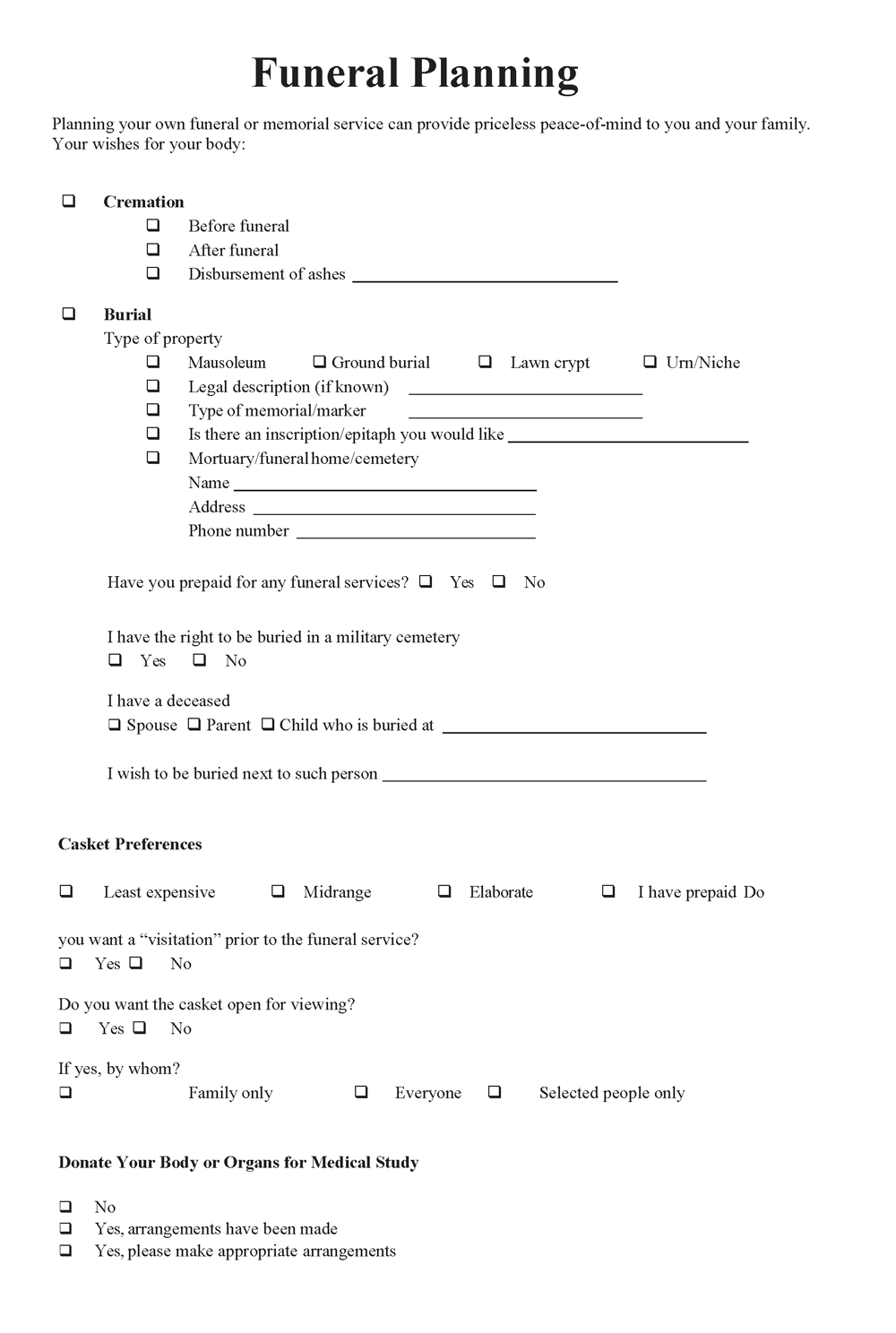
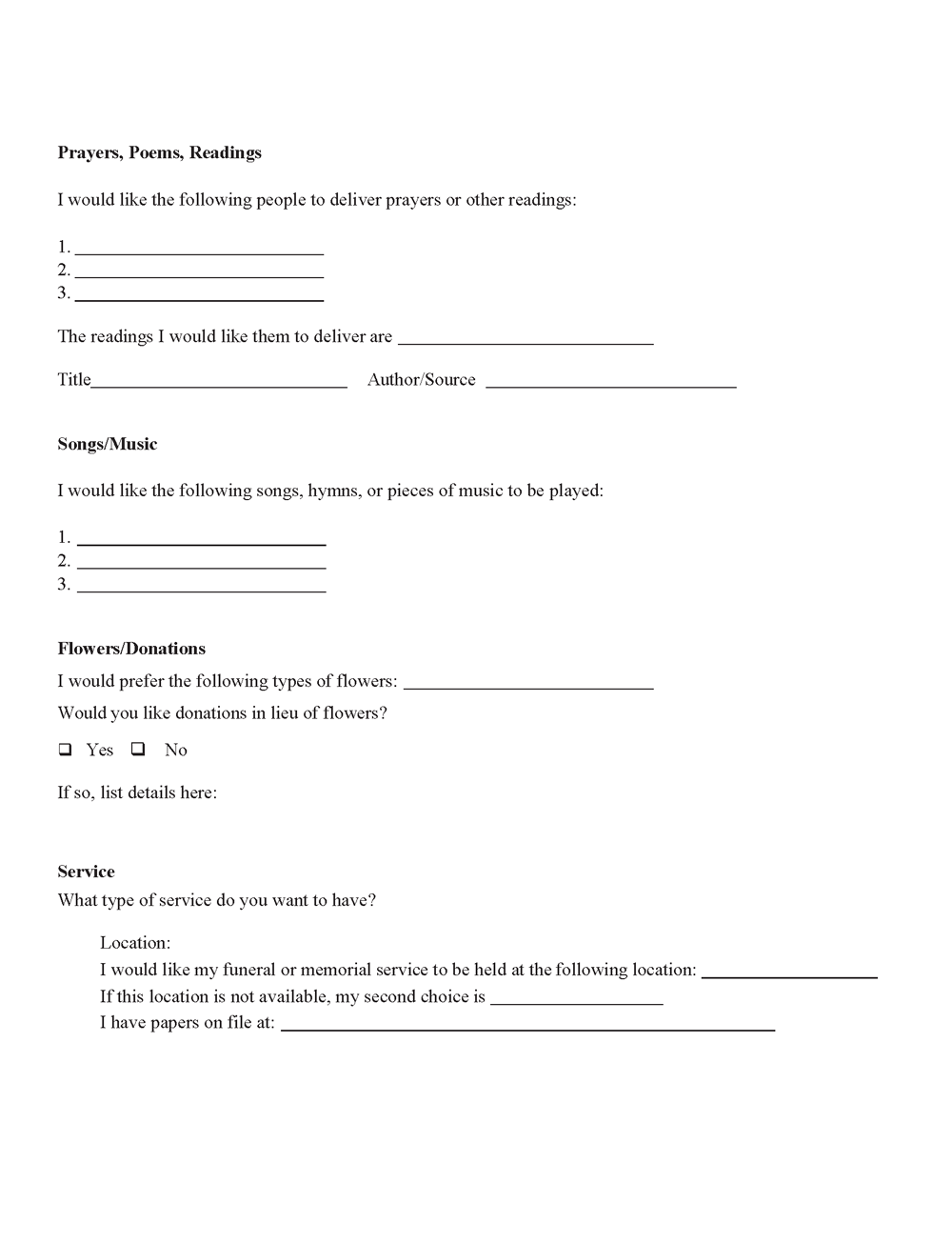
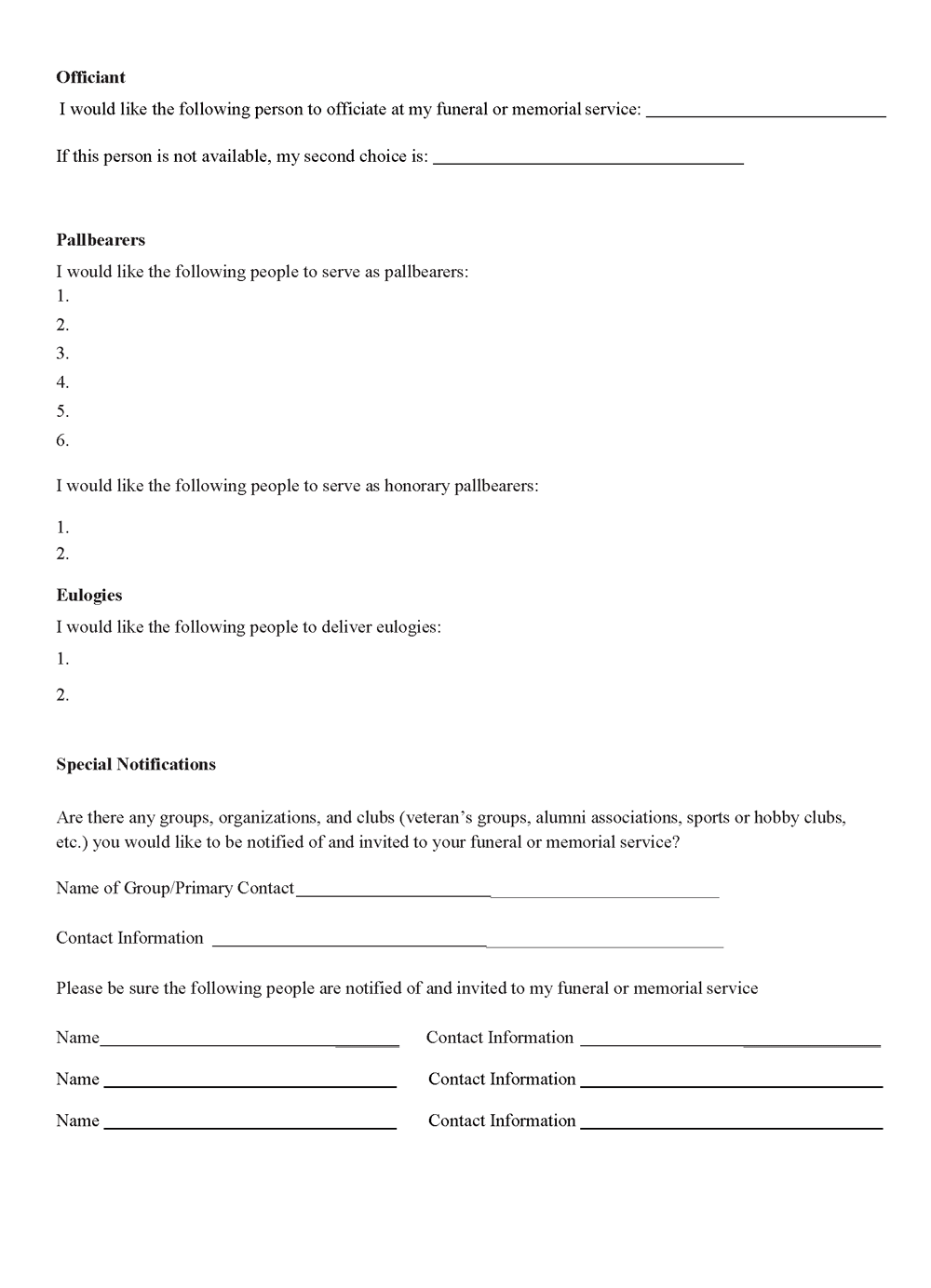
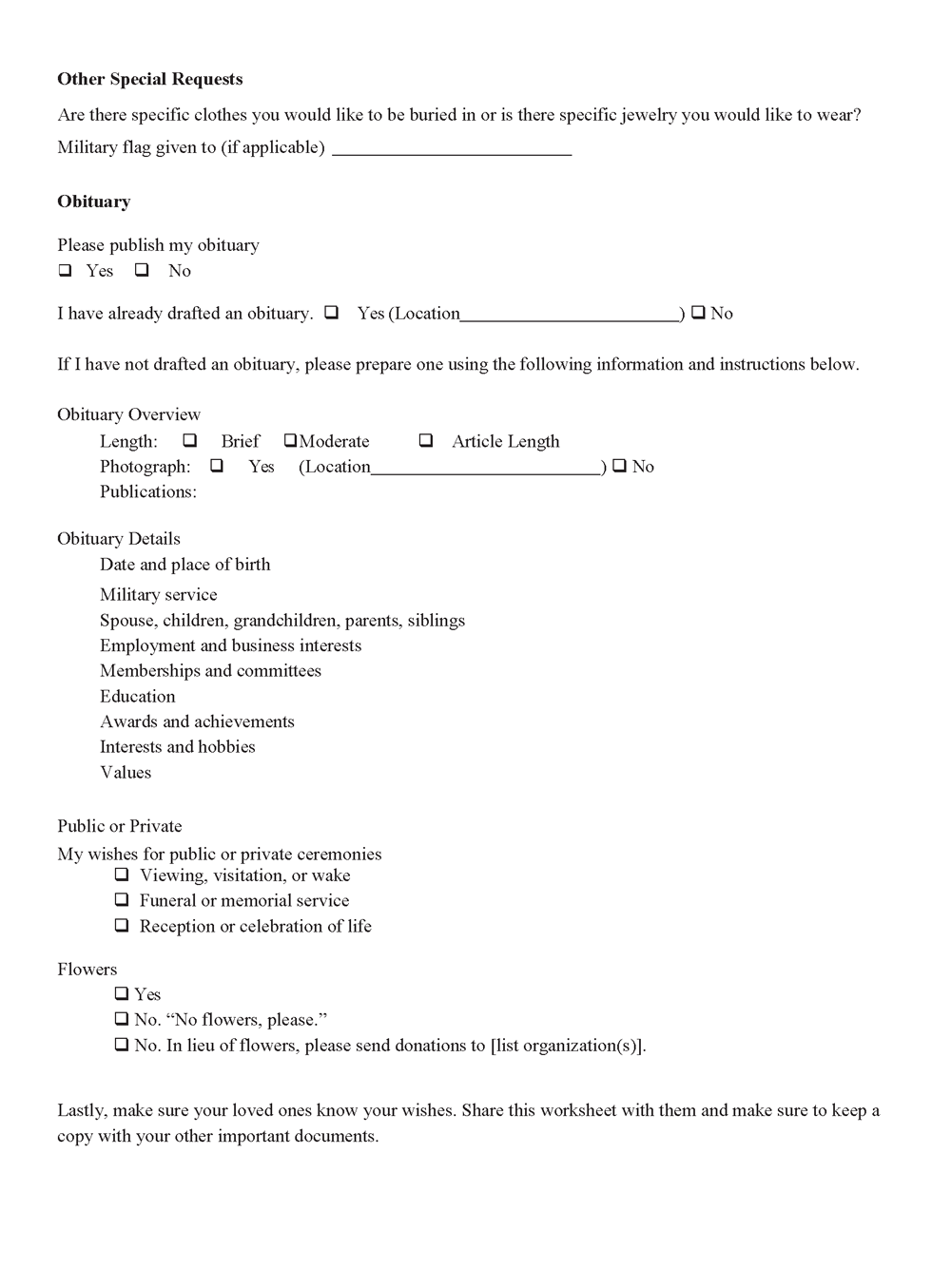
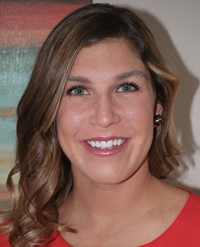
Michaela Scott, CFP, MSFS, is a four-year MDRT member with one Court of the Table qualification and strategic benefits consultant for Borislow Insurance. Her professional accolades highlight her mission to help clients identify and thoughtfully address their unique goals and most pressing concerns. She earned her masters of science in financial services.